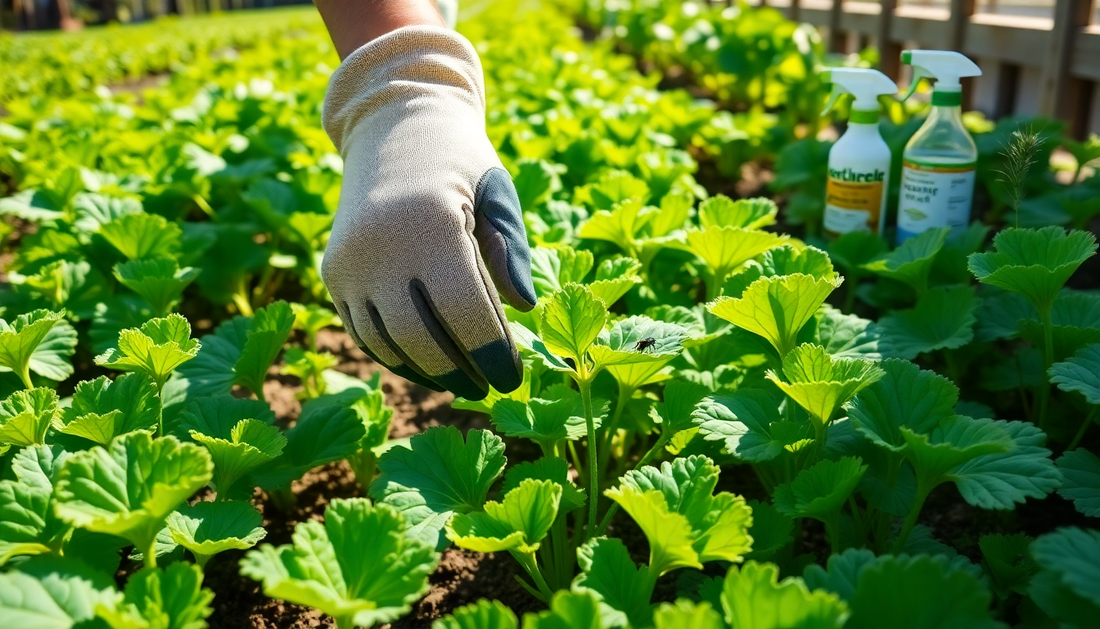
Winning the Battle Against Flea Beetles: Effective Strategies for Your Vegetable Garden
Flea beetles can be a frustrating and persistent pest for vegetable gardeners, causing unsightly holes in leaves and stunting plant growth. However, with the right strategies and a little bit of know-how, you can effectively control these pesky insects and protect your valuable crops. In this comprehensive guide, we'll explore the best methods for preventing and managing flea beetle infestations in your vegetable garden.
Understanding Flea Beetles
Flea beetles are small, jumping insects that feed on the leaves and stems of a wide variety of vegetable plants, including tomatoes, potatoes, eggplants, and cruciferous crops like broccoli, cabbage, and kale. They get their name from their ability to jump quickly, much like fleas. These pests can cause significant damage to plants, leaving behind a distinctive pattern of small, round holes in the leaves.
Flea beetles overwinter as adults in plant debris, soil, or other protected areas, and emerge in the spring to feed on young, tender foliage. They can produce multiple generations throughout the growing season, making them a persistent problem for gardeners.
Preventing Flea Beetle Infestations
The best way to deal with flea beetles is to prevent them from becoming a problem in the first place. Here are some effective strategies for keeping these pests at bay:
Crop Rotation
Rotating your vegetable crops from year to year can help disrupt the life cycle of flea beetles. By planting your crops in a different location each season, you can make it more difficult for the beetles to find and infest your plants.
Floating Row Covers
Covering your plants with lightweight, breathable row covers can create a physical barrier that prevents flea beetles from reaching your crops. Be sure to secure the edges of the row cover to the ground to prevent the beetles from getting underneath.
Companion Planting
Certain plants can act as natural repellents for flea beetles. Consider planting strong-smelling herbs like basil, marigolds, or catnip around your vegetable crops to help deter the insects.
Mulching
Applying a thick layer of organic mulch around your plants can help create an unfavorable environment for flea beetles. The mulch can make it more difficult for the beetles to access your plants and can also disrupt their life cycle.
Sanitation
Regularly removing plant debris and weeds from your garden can help eliminate potential overwintering sites for flea beetles, making your garden less attractive to these pests.
Managing Flea Beetle Infestations
Despite your best preventive efforts, you may still encounter flea beetle infestations in your vegetable garden. Here are some effective management strategies to help you regain control:
Insecticidal Sprays
If flea beetles are causing significant damage to your plants, you may need to use an insecticidal spray to control the population. Look for products containing active ingredients like pyrethrin, spinosad, or neem oil, which can be effective against flea beetles while minimizing harm to beneficial insects.
Diatomaceous Earth
Applying a thin layer of diatomaceous earth around the base of your plants can create a physical barrier that cuts and dehydrates flea beetles, effectively reducing their numbers.
Handpicking
For small-scale infestations, you can try manually removing flea beetles from your plants by hand or with a vacuum attachment. This method is time-consuming but can be effective for keeping the population in check.
Trap Cropping
Planting a trap crop, such as radishes or turnips, can lure flea beetles away from your valuable vegetable crops. The beetles will be drawn to the trap crop, allowing you to focus your control efforts on a smaller, more manageable area.
Conclusion
Flea beetles can be a persistent and frustrating pest for vegetable gardeners, but with the right strategies, you can effectively control them and protect your crops. By implementing a combination of preventive measures and targeted management techniques, you can enjoy a bountiful and healthy vegetable garden, free from the damage caused by these pesky insects.
Remember, the key to successful flea beetle control is to stay vigilant, act quickly, and use a variety of integrated pest management (IPM) strategies. With a little effort and persistence, you can win the battle against flea beetles and enjoy a thriving, productive vegetable garden.







No comments